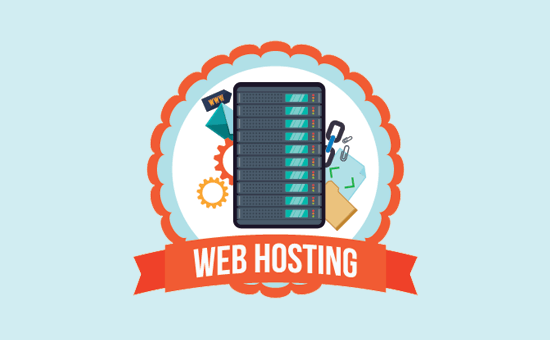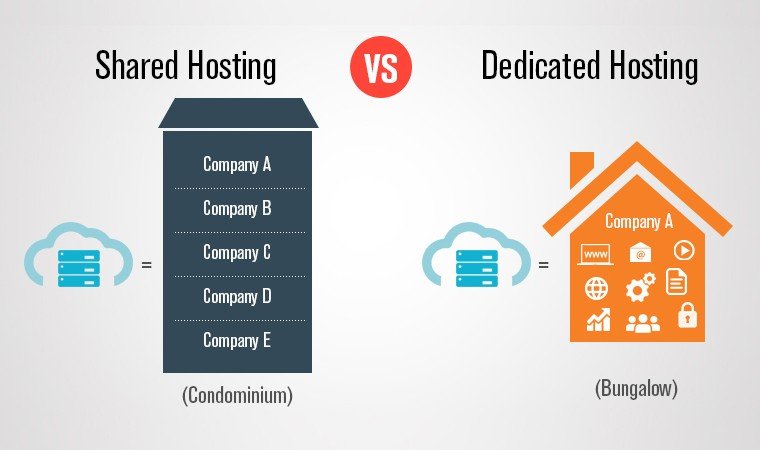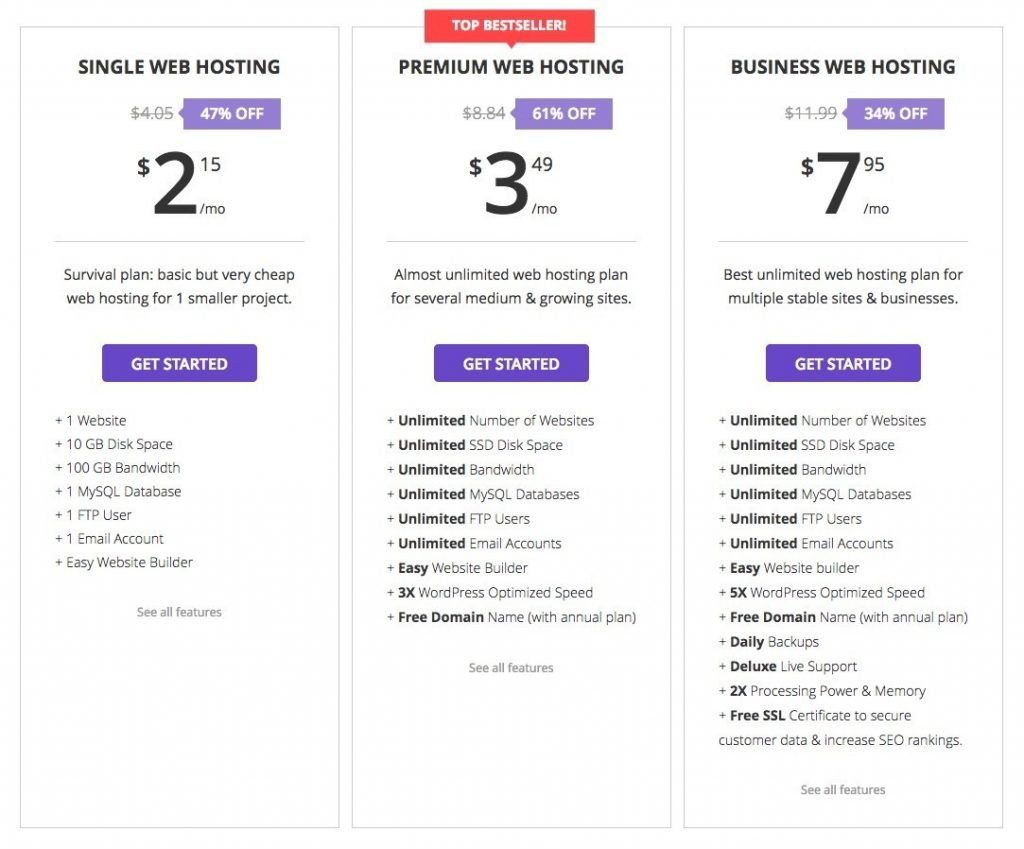
Last week we have published a post reviewing and comparing free web hosting services, but after receiving a lot of responses, we decided to also review a paid web hosting service, for those of you are willing to pay a few extra dollars, which go along a way, when it comes to receiving a high quality, stable service.
Free vs. Paid?
While free hosting providers can be good for starting businesses, at the end of the day, you may find yourself getting what you’ve paid for. 15 years ago, having your own hosting account was a luxury not many could afford. Today, bandwidth is so cheap, it is often offered as “unlimited”, the vast majority of hosts offer super fast servers, plenty of storage space and more often than not — also throw in a free domain name. What used to cost hundreds of dollars, now costs literally pennies, and everyone is able to afford a premium service, which will ensure they website stays online and continuously converts visitors into customers, even when you sleep. In order to make the best out of your cheap web hosting service, and avoid paying more than you have to, make a small list of the things you absolutely need.
For example, if you only plan to host 1 website/domain, you don’t need to pay extra for a hosting plan that offers to accommodate up to 100 domain names. Also, if you intend to offer large files for download, you might want to roughly calculate how much disk space and data transfer you are going to need. Lastly, there is a big difference between hosting a static, HTML page, and a WordPress blog. For the later, you’ll need a MySQL database, and this type of website tends to consume more server-CPU, since sending multiple php queries easily overheats the server, especially if you have a lot of traffic that is actively engaged.
Keeping these things in mind will help you save time and money when choosing a hosting provider because you’ll know what you are looking for, before you’ll get bombarded with “irresistible” offers.
Remember, that hosting industry is intensely competitive, but that only works in your favor, since hosting companies have no choice but to continuously lower their prices.
Key factors in web hosting, that are often overlooked
While the vast majority of end-users concentrate on price, bandwidth, number of domains, etc., there are a few very important things you need to take into consideration, which are often overlooked prior to signing up with any given company.
Backups
With some hosting providers, you can manually make backups via your control panel. Others do it automatically for you and others… do nothing at all. In the past, if you are old enough to remember the era of HTML sites, you simply built your website on your own PC. When you were done, you could upload it to the internet and since the website was static, there was nothing to backup. That is no longer the case, however. If you have built your website or had it built in a website builder, or in WordPress, Joomla or another CMS — then you have one version, namely the version that is online. If something goes wrong, you can only rely on a backup version to get your website back online.
You have to either make your own backups or have them done by your hosting provider. Check how far back you can retrieve an old version and how easy it is, before signing up. In this case, obviously, hosts that offer automatic backups are best.
You may have used GMAIL your entire life, but if you have a domain name, especially if it’s a business website, you will need to create an e-mail address that accompanies your website’s identity, such as admin@toptut.com. That is more professional than a Gmail or Yahoo address and you can still point all your emails to your gmail account (this is what I do), to have all your incoming messages in one place. Every hosting plan offers a different number of allowed email addresses, so this is again something to keep an eye on. Is your website a “one man show”, or are you going to assign 20 different email addresses for each employee?
Spam filters and anti-virus software
If all goes well, your website and your e-mail will be protected by the hosting company against spam and viruses. Double check, if that is included in your package. Sometimes you have to pay extra for protection (that is not what SSL is for, by the way). Although only time can tell, how bulletproof your server really is in action, and in reality no one can guarantee a 100% defense against compromising scripts on your server, some hosts do brag that they offer daily virus scans, alerts, built-in anti-viruses and more.
Shared hosting or your own server?

Another topic that is often very unclear to beginners, is whether they need a dedicated server or a shared host. While the price difference is usually tenfold and could be a deciding factor on its own, normally you can share the server with other customers without any problem and this is why it’s called “shared hosting”. Hosting providers can thus optimally distribute their available capacity. That is generally fine and is only a problem if one of the other users on the same server misuses the server or overloads the CPU (using their small account to send out massive newsletters or hosts a blog that receives millions of visitors monthly). If this happens, a good hosting provider solves this as quickly as possible by suspending the misbehaving account automatically, if it detects spammy activity or the server is unable to hold the load of visitors. Although I have heard many people saying, that they are afraid of their website going offline due to high traffic, and they sign up for a dedicated host “just in case”. I can assure you, that this is absolutely useless. Firstly — you can start small and upgrade at any time IF your website grows dramatically. Secondly — even an average site can do well on a shared host, with the exception of high traffic forums and other scripts, that use a lot of php queries.
Support
Customer service is important, if (out of the blue!) your website is going offline, and you want to have it back online again as soon as possible. Therefore, pay attention to how you can reach the company. Is there a local telephone number you can use, or a live chat? What’s the regular turn around for a response? Some companies only offer support by email, which can be a problem, especially if you host your website overseas and due to the time difference, you end up wasting long hours between reach response.
In my experience, there is a huge difference in the customer service provided by hosting companies. It varies from unbelievably bad (not accessible and extremely slow) to extraordinarily good (smooth, friendly, lightning fast and knowledgeable). The best way to find out how the support system is working is to read reviews about the hosting company (on various third-party websites). If you encounter dozens of angry customers complaining about lack of support, that should be a red flag.
In this article, based on everything we covered above, we decided to recommend Hostinger, as a hosting provider who offers the best price/quality ratio. They offer different plans, depending on your needs (which we discussed already), starting as low as a few dollars a month. I believe their “Premium Web Hosting” package offers more than enough for a vast majority of websites, and $3.49 a month is… well… an unbeatable price.

Do you have a favorite web hosting service yourself? What are your experiences with, or with one of those mentioned above? Share your feedback and help other readers make the right choice.

It’s actually a nice and helpful piece of information. I’m happy that
you simply shared this helpful information with us.
Please stay us informed like this. Thanks for sharing.
Pingback:Getting Started With WordPress Hosting - All In One Solution
Pingback:Can A Free Web Hosting Service Cover All Your Needs?
Pingback:The New and Better URL Shortener Service in Here
Pingback:Free Wordpress Themes For Everyone - Grab Yours
Pingback:Top multi-feature enabled web hosting providers
Pingback:FatCow Hosting - Special Offer for Our Readers
Pingback:More Tips of Choosing the Best Hosting Deal - Beginners, please read!
Pingback:The Ultimate Guide on Drop Servicing - Service Arbitrage of the Future